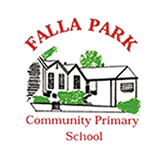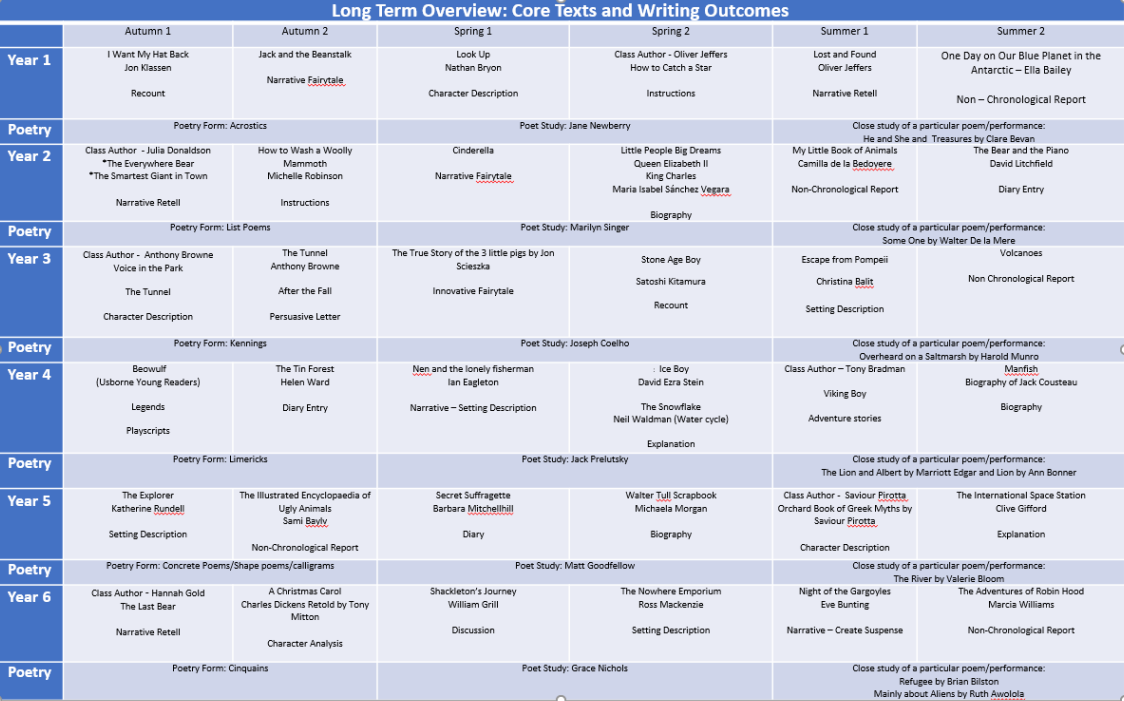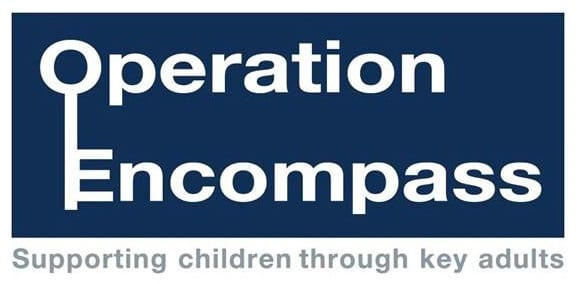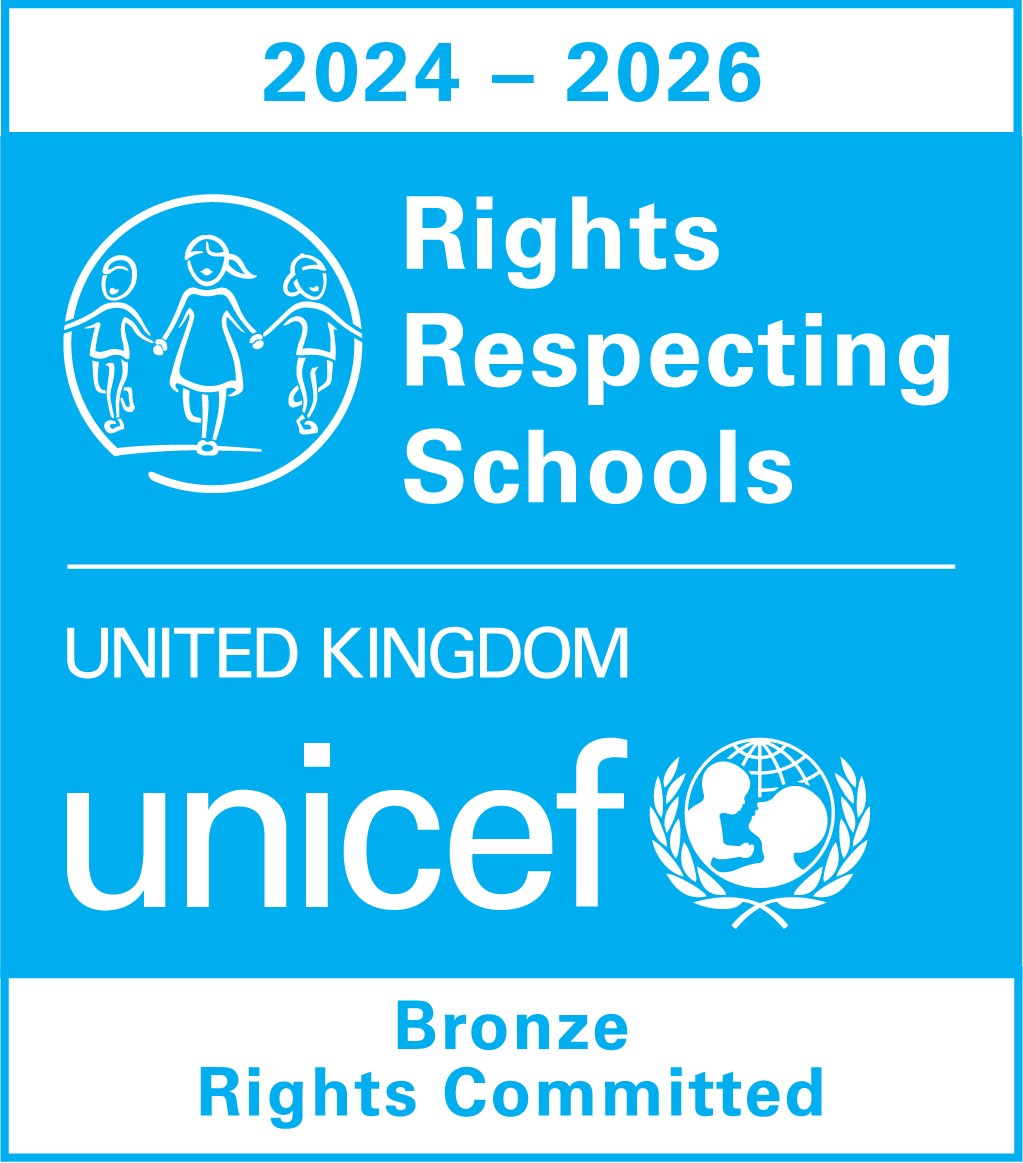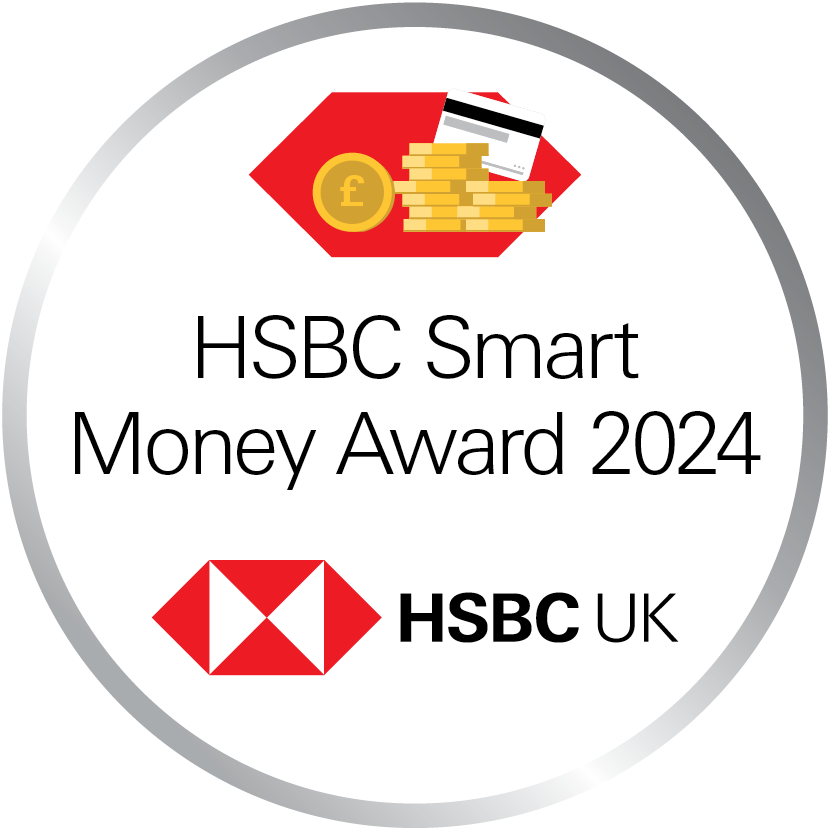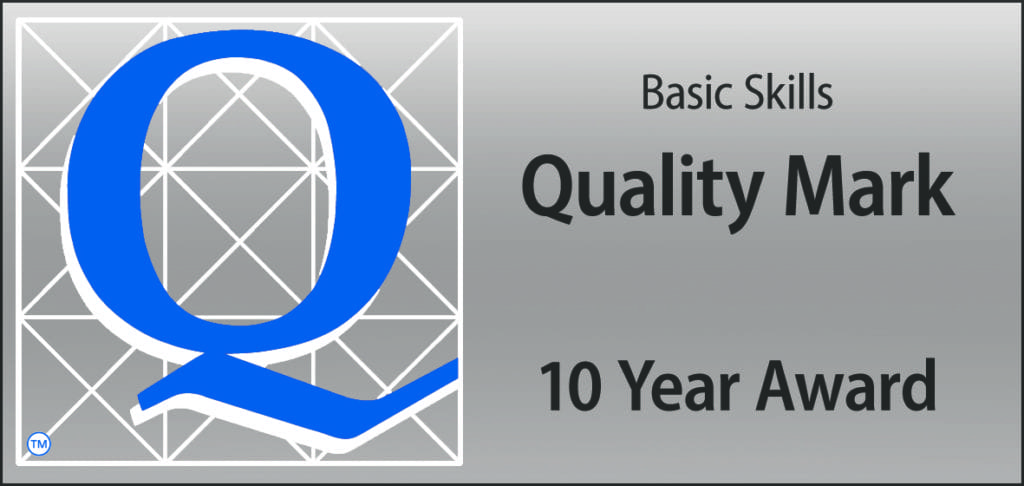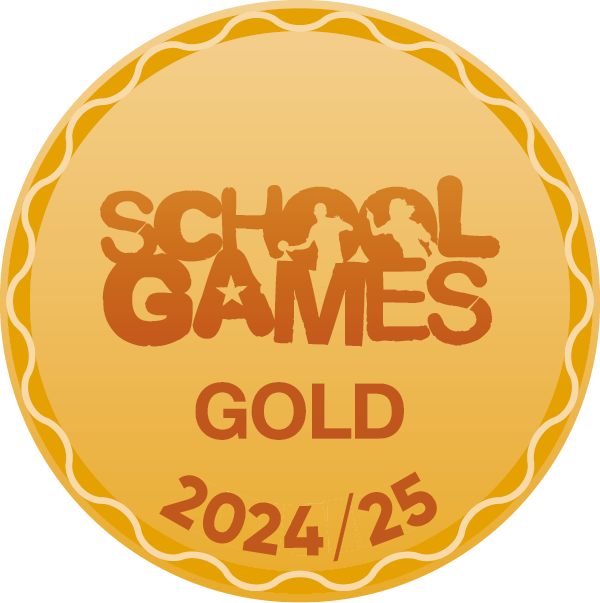English
Reading
Intent
At Falla Park Community Primary School, we value reading as a crucial life skill and strive to ensure our children leave our school as confident readers - for both purpose and pleasure. Our aim is that all children become confident, fluent readers with good understanding. We firmly believe that being able to read, provides children with access to the world around them, supports their ability to learn and develop in all areas and brings a sense of enjoyment. It opens doors to lifelong learning opportunities.
As they progress through school, the children are immersed in a carefully planned range of texts, with each one, building understanding of:
- the purpose of the text and the layout and style of the text
- how to read with accuracy and fluency
- the understanding and ability to answer a range of questions
- the effect of vocabulary within the texts
- understanding the wider world
Implementation
At Falla Park, our reading curriculum teaches the National Curriculum aims for English (2014) to ensure that all pupils:
- read easily, fluently and with good understanding
- develop the habit of reading widely and often, for both pleasure and information
- acquire a wide vocabulary, an understanding of grammar and knowledge of linguistic conventions for reading, writing and spoken language.
Reading underpins the children’s access to the curriculum, and it clearly impacts on their achievement. There is considerable research to show that children who enjoy reading and choose to read, benefit not only academically, but also socially and emotionally too. Children need to be taught an efficient strategy to decode words in order to be able to read.
Our reading Curriculum teaches and supports children to use phonics as the only approach to decoding. To do this, we start teaching phonics from Nursery/Reception and follow a systematic and synthetic phonics programme (Little Wandle Letters and Sounds Revised Progression,) which ensures children build on their growing knowledge of the alphabetic code, mastering phonics to read and spell as they move through school.
Foundations for Phonics in Nursery
We provide a balance of child-led and adult-led experiences for all children that meet the curriculum expectations for ‘Communication and language’ and ‘Literacy’. These include:
- sharing high-quality stories and poems
- learning a range of nursery rhymes and action rhymes
- activities that develop focused listening and attention, including oral blending
- attention to high-quality language
We ensure Nursery children are well prepared to begin learning grapheme-phoneme correspondences (GPCs) and blending in Reception.
Daily phonics lessons in Reception and Key Stage 1
Children make a strong start in Reception: teaching begins immediately in the Autumn term. We teach phonics for 30 minutes a day.
In Reception, we build from 10-minute lessons, with additional daily oral blending games, to the full-length lesson as quickly as possible. Each Friday, we review the week’s teaching to help children become fluent readers.
We follow the Little Wandle Letters and Sounds Revised expectations of progress:
- Children in Reception are taught to read and spell words using Phase 2 and 3 GPCs, and words with adjacent consonants (Phase 4) with fluency and accuracy
- Children in Year 1 review Phase 3 and 4 and are taught to read and spell words using Phase 5 GPCs
- Children in Year 2 review Phase 5 with greater accuracy and fluency to become confident word readers who can read texts with automaticity and prosody
Daily Keep-Up Lessons
Any child who needs additional practice has daily keep-up support, taught by a fully trained adult. Keep-up lessons match the structure of class teaching, and use the same procedures, resources and mantras, but in smaller steps with more repetition, so that every child secures their learning.
We timetable daily phonics lessons for any child in Year 2 or 3 who is not fully fluent at reading or has not passed the Phonics screening check. These children urgently need to catch up, so the gap between themselves and their peers does not widen. We use the Little Wandle Letters and Sounds Revised assessments to identify the gaps in their phonic knowledge and teach to these.
Children in Years 4 to 6 who have yet to complete the Little Wandle Phonics Programme or have gaps in their phonics learning, continue to be taught phonics daily. These children also receive additional keep up sessions.
Reading Practice
Children need regular opportunities to apply the phonics they have learned by reading fully decodable books. The phonic progression in these books is matched to the progression of ‘Little Wandle’ using the ‘Collins Big Cat’ books.
The children in Reception and Key Stage 1 read three times a week. The children are taught with books that match their secure phonic knowledge. All reading practice books have been carefully organised to match each phase and set of the Little Wandle programme to ensure progression.
Focus and Structure of Sessions
Children read the same book aloud in each of the three sessions with growing automaticity and accuracy. The pre-read and independent reading parts of the sessions are essential in providing the repeated practice needed for children to build fluency.
Each session in the ‘three read’ model has a clear focus:
- Read 1: decoding
- Read 2: prosody – readin with meaning, stress and intonation
- Read 3: comprehension- understanding the text
Each of these sessions follows the same structure:
- Pre-read: Revisit and review
- Reading practice: Practice and apply
- Review: Pacey review of any misconceptions
Impact
Children at Falla Park Community Primary School make excellent progress in reading from their starting points. They leave our school at the end of Year 6 as confident and purposeful readers who are able to read fluently with independence. They both learn from, and enjoy reading books.
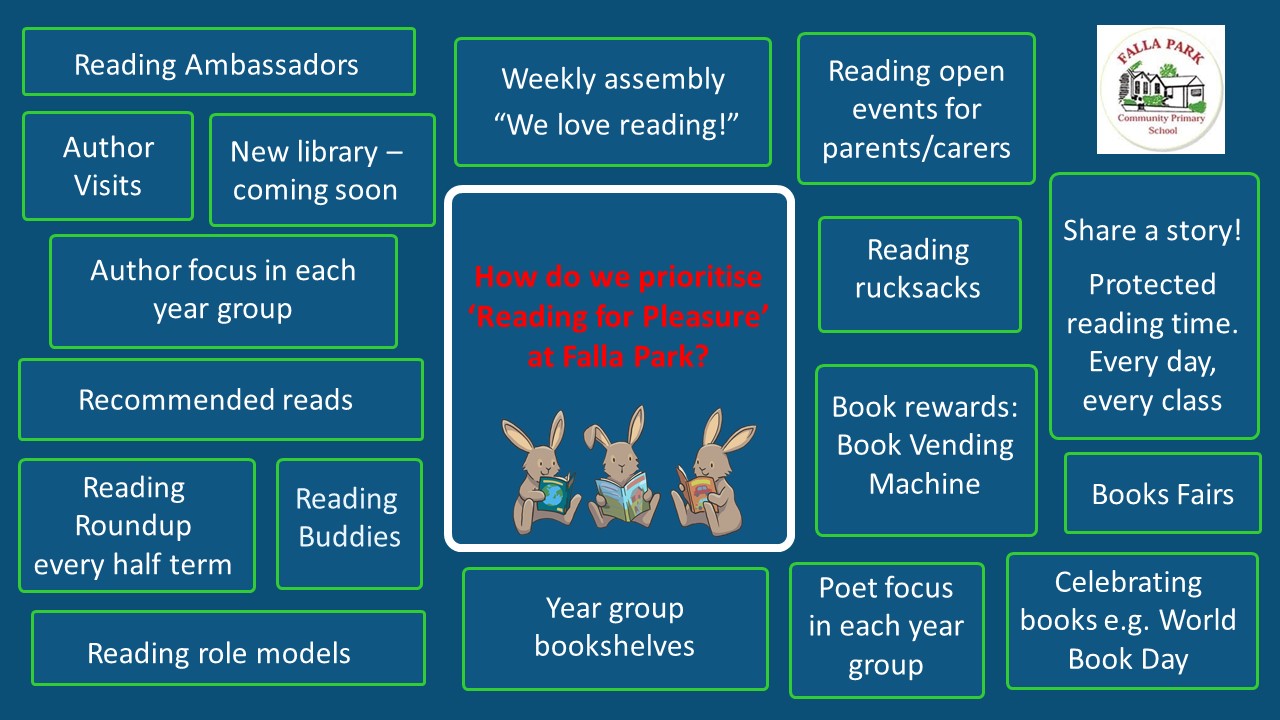
Reading Progression
What We Read
what we read at falla park.pdf
Reading at Home
Why reading is so important?
There can be few things as powerful as regularly reading to a young child. It has astonishing benefits for children: comfort and reassurance, confidence and security, relaxation, happiness and fun. Giving a child time and full attention when reading them a story tells them they matter. It builds self-esteem, vocabulary, feeds imagination and even improves their sleeping patterns.
The National Literacy Trust
Although your child will be taught to read here at school, parents and carers have a significantly positive impact on a child’s reading journey by continuing their practice at home. There are two types of reading book that your child may bring home:
- A reading practice book – this will be at the correct phonic stage for your child. They should be able to read this fluently and independently
- A sharing book – your child will not be able to read this on their own. This book is for you both to read and enjoy together.
Everybody Read - Leaflet for Parents
Reading Practice Book
 This book has been carefully matched to your child’s current reading level. If your child is reading it with little help, please don’t worry that it’s too easy – your child needs to develop fluency and confidence in reading.
This book has been carefully matched to your child’s current reading level. If your child is reading it with little help, please don’t worry that it’s too easy – your child needs to develop fluency and confidence in reading.
Listen to them read the book; remember to give them lots of praise – celebrate their success! If they can’t read a word, read it to them. After they have finished, talk about the book together.
Once your child is working beyond the Little Wandle Phonics Programme, they will be moved onto Accelerated Reader. Children will be assessed using a STAR reading test and given a specific range of books from which to choose. Each book has a short quiz to complete at the end to assess comprehension and understanding of what they have read. Class teachers monitor this closely to ensure children are choosing suitable books, varying genres and authors and continuing to develop a love of reading.
Sharing Book
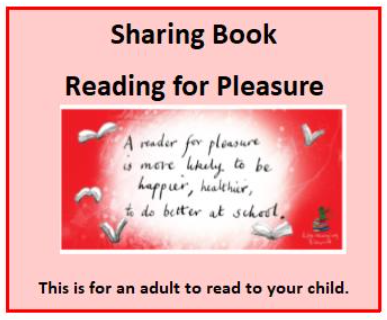 In order to encourage your child to become a lifelong reader, it is important that they learn to read for pleasure. The sharing book is a book they have chosen for you to enjoy together. These will be clearly labelled.
In order to encourage your child to become a lifelong reader, it is important that they learn to read for pleasure. The sharing book is a book they have chosen for you to enjoy together. These will be clearly labelled.
Please remember that you shouldn’t expect your child to read this alone. Read it to or with them. Discuss the pictures, enjoy the story, predict what might happen next, use different voices for the characters, explore the facts in a non-fiction book. The main thing is that you have fun!
Children bring books home every Friday. Books are to be returned every Wednesday. We ask parents/carers to make a record of their child’s reading at home in their reading diary.
Class Book
Having a daily story time session with an adult is something we value highly at Falla Park. Your child’s class teacher will be reading a high-quality text carefully chosen to reflect their age and interests, ensuring a balance of male and female authors and authors and stories from different cultures are incorporated throughout the year. It is one of the very best ways we can model our enthusiasm for reading and for books and create magic and excitement around the special joy of reading a good book. Other benefits from this very special daily time together are:
- Encountering new words and enriching vocabulary – you experience words that would almost never come up in conversation
- Helping children appreciate the beauty and rhythm of language
- Children enjoying and understanding texts beyond their own reading ability
- Enhancing imagination and observation skills
- Improving critical and creative thinking skills
- Expanding a child’s general knowledge and understanding of the world
- Developing empathy as they make connections with the experiences of the characters in the text and with each other
- Fluent, expressive reading being modelled
- Enabling them to make meaning from more complex texts
- Conditioning the brain to associate reading with pleasure
- Planting a desire to read
Suggested Books
Below are links to the top 100 recommended reads for each year group.
-
100 Recommended Reads for Reception
download_for_offline
download_for_offline100 Recommended Reads for Reception
- 100 Recommended Reads for Year 1 download_for_offline
download_for_offline100 Recommended Reads for Year 1
- 100 Recommended Reads for Year 2 download_for_offline
download_for_offline100 Recommended Reads for Year 2
- 100 Recommended Reads for Year 3 download_for_offline
download_for_offline100 Recommended Reads for Year 3
- 100 Recommended Reads for Year 4 download_for_offline
download_for_offline100 Recommended Reads for Year 4
- 100 Recommended Reads for Year 5 download_for_offline
download_for_offline100 Recommended Reads for Year 5
- 100 Recommended Reads for Year 6 download_for_offline
download_for_offline100 Recommended Reads for Year 6
Writing
Intent
At Falla Park Community Primary School, we aim to create confident and purposeful writers, who have good knowledge of different writing purposes and good awareness of audience needs. We aim to support and guide children to build the necessary skills and writing techniques that they need to become independent and effective writers through teaching the main aims of the national curriculum for transcription and composition.
As our children progress through school, they are immersed in a carefully planned range of genres through the use of high-quality texts. Within each text and genre, we aim to build understanding of:
- the purpose for the writing
- the intended impact of grammar and writing techniques
- the effect of vocabulary choice on the readers’ thoughts and feelings and
- how to write effectively
Implementation
Writing Guidance Policy (see Policies section)
In our school, we follow a ‘book based’ approach using high-quality books as the core text to stimulate ideas and topics for both narrative and non-fiction writing (every term). The children explore the texts in a sustained way and engage with the materials in depth; thereby, providing content for their own writing. In addition, key writing skills are developed through our poetry curriculum.
Each unit of work lasts between 4-6 weeks and is delivered through a daily, 50-minute English lesson from Year 1 to Year 6.
Within each teaching sequence, children are taught the progressive key ‘steps’ in learning to ensure children develop skills in:
- Cohesion
- Sentence structure
- Composition and Effect
- Punctuation
These key skills are built upon within and across units of work for the intended purpose and audience.
Our approach to teaching of writing can be shown through the spiral approach.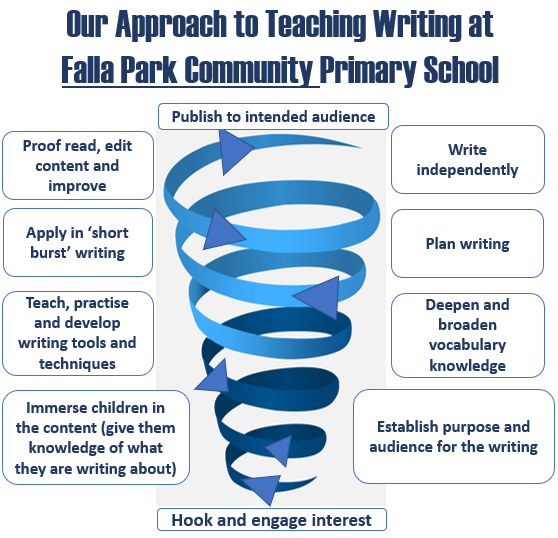
Vocabulary
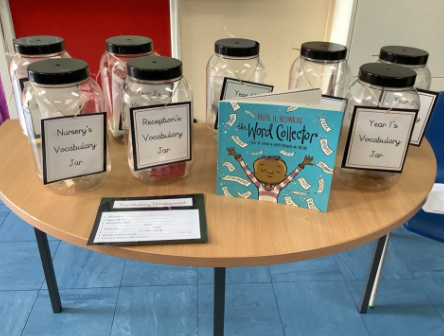 Vocabulary is explicitly taught and referred to within English lessons in order to deepen and broaden vocabulary knowledge. All classes have a vocabulary jar where taught words are placed and this moves through the school with the children each year to both build on and embed previously taught learning.
Vocabulary is explicitly taught and referred to within English lessons in order to deepen and broaden vocabulary knowledge. All classes have a vocabulary jar where taught words are placed and this moves through the school with the children each year to both build on and embed previously taught learning.Transcription
Transcription is an integral element of teaching and learning at Falla Park. We believe that fluent transcription is a foundational skill for effective writing to reduce cognitive load and allow more ‘space’ in children’s working memory to ensure our children become confident, capable writers.
Handwriting
Our intention is to make handwriting an automatic process that does not interfere with creative and mental thinking. Our aim is that by the end of Key Stage 2 all children should have the ability to produce fluent, legible, joined handwriting. Handwriting sessions are taught outside of the English lesson in all year groups at least three times per week. We use printed letter formation in Early years and Year 1, following the formation taught within the Little Wandle phonics programme. From Year 2, children are taught cursive script using the Letter Join handwriting scheme.
Dictation
We use dictation as an approach to practising holding a sentence, punctuation and spelling rules. Every English lesson from Year 1 to Year 6 begins with a short, regular dictation exercise. Sentence length, type and complexity is matched to age group expectations and builds on previous learning and formative assessment.
Spelling
In Early Years and Key Stage 1, phonics knowledge underpins spelling and we follow the Little Wandle phonics and spelling programme. From Year 1 to Year 6, we dedicate one full English lesson per week to the direct teaching of spelling, as well as daily additional practice and teaching. This continues into key stage two for children who continue to need phonics as the root to spelling. From Year 3, we implement Spelling Shed as a progressive spelling scheme.
Phonics Information for Parents
The Little Wandle Phonics Programme has lots of information to support parents/carers when helping their child with reading and phonics including videos. Click on the link below to access the resources and information.
Little Wandle - Resources for Parents
- 100 Recommended Reads for Year 1 download_for_offline
